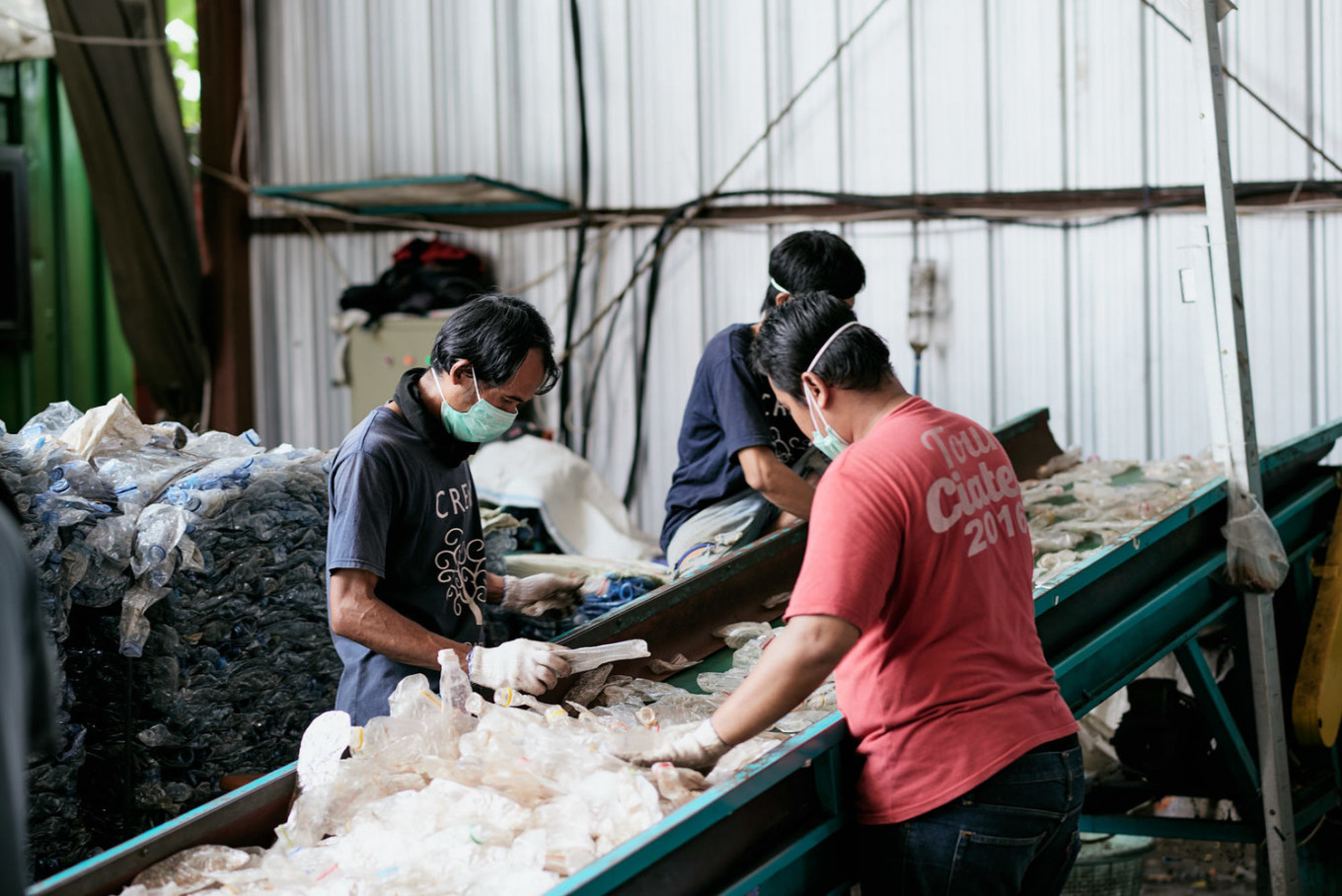Popular Reads
Top Results
Can't find what you're looking for?
View all search resultsPopular Reads
Top Results
Can't find what you're looking for?
View all search resultsPlastic recycling company looks to expand as circular economy blooms
“The only way investors will act at scale to address the plastic waste crisis is if they believe this is a money-making opportunity,” said Circular Capital CEO Rob Kaplan.
Change text size
Gift Premium Articles
to Anyone
H
omegrown plastic recycling company PT Tridi Oasis Group is looking to expand its business in the flourishing circular economy, as it received part of a US$6 million investment dedicated to tackling the ocean plastic crisis in South and Southeast Asia.
The funding, claimed as the world’s first investment fund dedicated to the cause in the region, was disbursed by Singapore-based Circulate Capital on April 28 and was shared with Indian recycling company Lucro.
The investment is part of the Circulate Capital Ocean Fund’s $106 million in dedicated debt and equity financing for circular economy start-ups and small and medium enterprises (SMEs) in countries like Indonesia, Thailand and India.
Tridi Oasis CEO Dian Kurniawati said the company would use the funds to set up a larger recycling facility outside of Jakarta and to recycle other types of plastic beside the common polyethylene terephthalate (PET).
“Circulate Capital also provides technical assistance and mentoring,” she told The Jakarta Post on Tuesday. “They help us broaden our customer base in Indonesia and in the region.”
The company works by collecting PET bottles from domestic waste management with a network of local suppliers that separate the plastic from other materials. The plastic bottles are then processed into plastic flakes, which can be used to manufacture packaging and textiles.
Dian said demand from manufacturers for high-quality plastic flakes had risen as companies look to improve the sustainability of their supply chain and move toward recycled packaging. In 2018, the company processed around 60 million PET bottles, and it has been growing since, she added.
Tridi Oasis’ primary customers are based in foreign markets in the fast-moving consumer goods (FMCG) and textile industries. However, there was significant domestic potential as big brands began to look for locally sourced recycled plastic for their products, Dian said.
She went on to say that regulations in foreign markets, such as the European Union requiring manufacturers to include a minimum of 30 percent of recycled plastic in their PET bottles by 2030, created more opportunities for the recycling industry.
“But we are also aware that the Indonesian government has set a target to reduce marine plastic debris by 70 percent by 2025,” Dian said. “So, we have definitely seen an increase in awareness of the importance of implementing a plastic circular economy at home.”
Recycling has been gaining traction over the years as major polluting companies, such as Indofood and Danone, were working together and creating initiatives in waste management.
Despite the rising potential in the industry, Dian noted that securing funding had been one of the biggest challenges since the company started in 2016, as most investment for start-ups went to technology companies rather than the environment or social impact sector.
Rob Kaplan, Circulate Capital CEO concurred with Dian’s take on waste management investment, saying that attracting the billion dollars needed to solve the ocean plastic problem had always been the challenge.
According to Ocean Conservancy, global plastic waste leakage to the ocean could be reduced by 45 percent by 2025 if five countries with the largest share of plastic waste in Asia, including Indonesia and China, invested $5 billion annually in waste management and recycling.
“The only way investors will act at scale to address this crisis is if they believe this is a money-making opportunity,” he said. “Our objective is to show that investing in the recycling sector can generate attractive financial returns as well as bringing environmental and social benefits.”
The investment company planned to disburse four to five more investments by the end of the year by deploying about 20 percent of the CCOF funds raised this year.
“We see great opportunities to help Indonesian entrepreneurs in the circular economy sector. I invite Indonesian start-ups and SMEs that are developing innovative solutions to apply for our funding,” he said.
Recently, another Indonesia-based waste management start-up Waste4Change had also received an undisclosed amount of funding from three venture capitals firms, namely Agaeti Ventures, East Ventures and SMDV.
The funds were said to be used for reaching the start-up’s target to manage up to 2,000 tons of daily waste by 2024.
Waste4Change founder M. Bijaksana Junerosano said last year that Indonesia could gain a potential $7 billion from implementing better waste management and an additional $28 billion from implementing a holistic value chain with the circular economy model.
Indonesia is the second-largest ocean plastic polluter in the world – producing 4.8 million tons of mismanaged plastic waste every year, of which 620,000 tons end up in waterways and the ocean.










